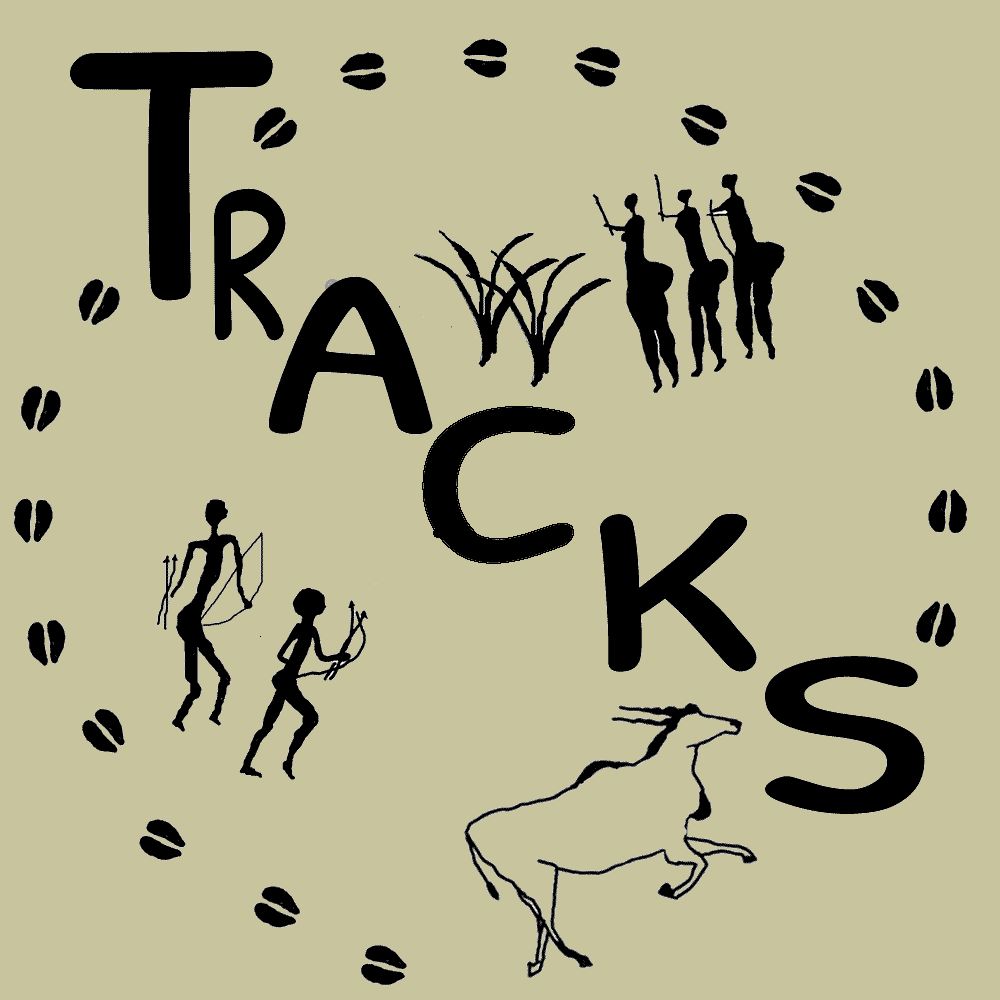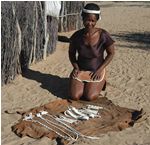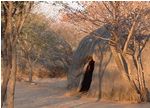The
TrACKS Project
(Transferring Ancient Culture, Knowledge, and Skills)
A Community Based Natural Resource Management (CBNRM) initiative to
preserve the traditional knowledge and skills of Botswana's San Bushmen
and to generate economic benefit from these skills
The TrACKS
(Transferring Ancient Culture, Knowledge, and Skills) Project, as its
name suggests is about preserving the traditional hunting/gathering
skills and knowledge of the San Bushmen of the Kalahari Desert. The
project's goal is to preserve our hunter/gatherer heritage and provide
economic benefit to these indigenous people in Botswana.
As a continuation of Botswana's Community Based Natural Resource Management
(CBNRM) policies, the project would be to establish a cultural/community
resource center consisting of a game farm and large vegetation reserve
area within a Bushmen and other Remote Area Dwellers (RAD) community.
The purpose would be to provide food through hunting and gathering as
a means to retain the San Bushmen culture and knowledge as well as perhaps
offering language classes.
Botswana recently ended commercial hunting on public lands. Hunting
is heavily regulated and managed with Controlled Hunting Areas (CHA).
The communities living within these CHA's benefited financial, either
directly by fees paid by safari operators, or with employment opportunities
and free game meat. With the ending of hunting, many of these communities
have no way of benefiting from their surrounding environment. Most of
the areas are not suitable for photographic safaris or agriculture.
By developing a game farm with animals native to the area, the land
can produce a benefit to the community with minimal on-going expense
provided the farm is large enough to meet all the ecological needs of
the animals. A large area surrounding the game farm would be designated
a vegetation reserve and be livestock free and would allow for gathering
traditional plant foods and medicines.
The project
would raise money for the initial development of the farm and then provide
ongoing technical expertise and oversight to ensure the continuity and
sustainability of the farm. The Kalahari is a harsh environment with
poor natural resources. The San Bushmen communities there are extremely
poor with few ways to earn a living. It has been over 50 years since
the last San Bushman lived a true hunter/gatherer life style. Therefore,
the transition to today's cash economy has been difficult. During this
struggle to integrate into the modern world, these communities still
rely on some level of subsistence use of their natural surroundings.
During this transitional period, the wildlife populations and the San
Bushmen's access to them for subsistence hunting has been greatly reduced.
In fact, recently all hunting has been stopped in Botswana, except for
on registered game farms. With this lack of access, there is no need
for ancient knowledge and skills.
But we do need it. Saving this wealth of knowledge is not just about
helping the Bushmen today. It is for all of humankind. As a link to
the past, to our oldest culture, these skills are what made us. As a
way forward, we still need this ancient knowledge and spirit of how
to live sustainably in our environment, to care for it, to find what
we need from it without harming it. This essential human element is
being wiped out when we need it the most. And when it is gone, it will
be gone for good, and the world with be all the sadder for it.
The TrACKS project's goal would be to provide a way for a San Bushmen
community to legally hunt and gather allowing the older generation to
pass on their knowledge to the next generation. The game farm and plant
reserve would provide a means for the community to gain a subsistence
level of economically benefit. The goal is not to make money but to
provide food directly to the members of the community on a subsistence
level. Equitable access and sharing of the resources would be arranged.
If the project is successful, it could be replicated in other San Bushmen
communities around western Botswana.
The project is the idea of Peter and Cecilia Durkin. Peter Durkin started
his involvement with San Bushmen in 1984 as a Peace Corps volunteer
assigned to Ghanzi, in the middle of the Kalahari, to work with these
remote communities. Mr. Durkin returned to Botswana in 2003 with his
family to run a nonprofit game reserve. The Durkins subsequently left
the game reserve to move to Ghanzi to again work with San Bushmen communities.The
subsequently moved back to the US to establish a market for Bushmen
made crafts (
www.womensworkbw.com)
and view the TrACKS project as their next step.

The project also proposes
to partner a university in the USA and the University of Botswana with
the San Bushmen community to facilitate research into this traditional
ecological knowledge base. The fields of research could be natural resource
management, ethnology, language, genetics, medicinal uses of plants,
wildlife biology, and more. The project will require some form of income
to cover operating expenses. This could include income from craft production,
commercial use of plant resources, tourism, and possibly from intellectual
property rights from the discovery of economically valuable pharmaceutical
uses of plants.
The first step in developing the project would be to do a feasibility
study. This would involve investigating legal issues, speaking with
various governmental departments in Botswana, identifying a project
site by meeting with potential Community Trusts and talking with University
to discuss partnerships.

Shorty, Xanate, and Peter, "The happy hunters"
©2014 TrACKS All rights reserved




